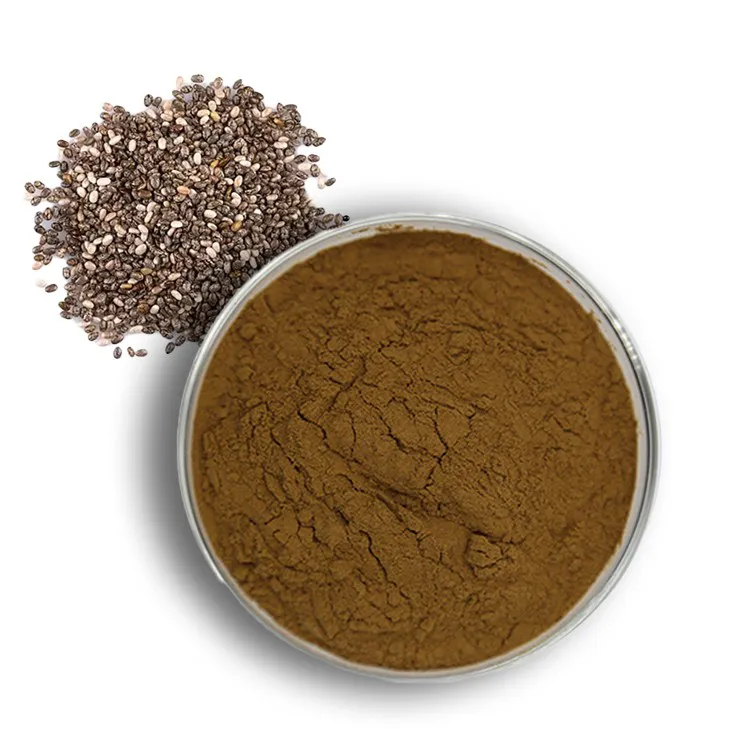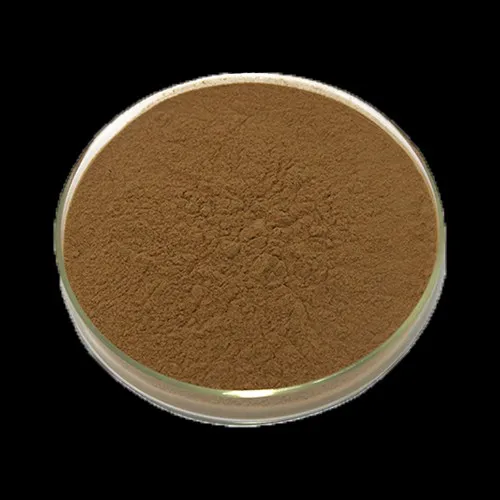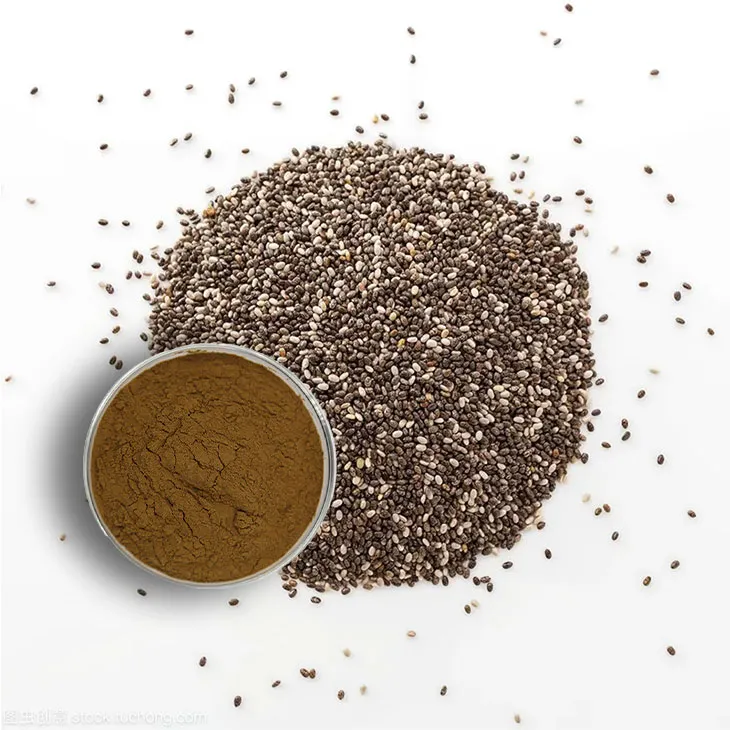- 0086-571-85302990
- sales@greenskybio.com
Adopt an economical and efficient way to buy chia seed powder in bulk.
2024-12-10

1. Introduction
Chia Seed Powder has gained significant popularity in recent years due to its numerous health benefits. It is rich in fiber, omega - 3 fatty acids, protein, and various minerals. For those who consume it regularly, buying in bulk can be a cost - effective solution. However, to ensure that you get the best deal while maintaining quality, it is essential to adopt an economical and efficient buying approach. This article will guide you through various strategies to achieve this goal.

2. Evaluating Different Markets
2.1 Local Grocery Stores
Local grocery stores are a common option for purchasing Chia Seed Powder. They offer the convenience of immediate availability. However, they may not always have the best prices. Some grocery stores may mark up the price to cover their overhead costs. It is advisable to compare prices among different local stores. Look for sales, discounts, and loyalty programs that can help you save money. For example, some stores may offer a "buy one, get one half - off" deal on chia seed products during certain promotions.
2.2 Health Food Stores
Health food stores typically focus on natural and organic products, including Chia Seed Powder. They may have a wider selection of high - quality chia seed powders, such as organic or non - GMO varieties. While the quality might be higher, the prices can also be relatively steep. Nevertheless, it is still worth checking these stores. Sometimes, they may have special discounts for bulk purchases or offer in - store coupons. Additionally, the staff at health food stores are often more knowledgeable about the products and can provide useful information about the origin and quality of the chia seed powder.
2.3 Online Retailers
Online retailers present a vast array of options for buying chia seed powder in bulk. One of the major advantages is the ability to compare prices across multiple vendors with ease. Websites like Amazon, for instance, have numerous sellers offering chia seed powder. You can read customer reviews to gauge the quality of the product before making a purchase. Online retailers also often have lower overhead costs compared to physical stores, which can translate into lower prices for consumers. However, be aware of shipping costs. Some online vendors may offer free shipping for large orders, while others may charge a significant amount. It is crucial to factor in the shipping cost when calculating the overall cost of buying in bulk.
2.4 Wholesale Markets
Wholesale markets are designed for bulk purchases. If you can access a local wholesale market or a wholesale food distributor, you may be able to get chia seed powder at a very competitive price. These markets usually deal with larger quantities, so it is ideal for those who need a substantial amount of chia seed powder. However, you may need to meet a minimum order quantity requirement. Also, the quality may vary among different suppliers in the wholesale market, so it is necessary to do some research and sample testing if possible.

3. Understanding Price Trends
3.1 Seasonal Variations
Chia seed production can be affected by seasonal factors. Understanding these seasonal variations can help you time your bulk purchase more economically. For example, if there is a bumper crop of chia seeds in a particular season, the price of chia seed powder may be lower due to increased supply. Research the harvesting seasons of chia seeds in different regions. In some areas, chia seeds are harvested during the summer months, and this could potentially lead to lower prices in the market shortly after the harvest. By keeping an eye on these seasonal trends, you can take advantage of the price drops and buy in bulk at a more favorable cost.
3.2 Market Fluctuations
The price of chia seed powder can also be influenced by market fluctuations. Factors such as changes in demand, competition among suppliers, and global economic conditions can all impact the price. For instance, if a new study highlights the health benefits of chia seeds, leading to an increase in demand, the price may go up. On the other hand, if new suppliers enter the market, increasing competition, the price may be driven down. Stay informed about industry news, market reports, and economic indicators that can give you insights into these price fluctuations. You can subscribe to agricultural or food industry newsletters, follow relevant blogs, or join online forums where discussions about chia seed prices take place.
3.3 Long - Term Price Analysis
Conducting a long - term price analysis can provide a more comprehensive understanding of the cost of chia seed powder. Look at historical price data over the past few years. This can help you identify any upward or downward trends. For example, if you notice that the price has been steadily increasing over the years, it might be a good idea to buy in bulk sooner rather than later. On the other hand, if there have been significant price drops in the past and the market seems to be volatile, you may want to wait for a more opportune time to make your large - scale purchase. There are various online tools and resources available for tracking historical price data of agricultural products like chia seeds.

4. Negotiating with Vendors
4.1 Building a Relationship
Before negotiating with a vendor for bulk purchase of chia seed powder, it is important to build a relationship with them. If you are a regular customer at a local store or have had previous interactions with an online seller, it can work in your favor. Start by being polite, asking relevant questions about the product, and showing your interest in their business. For example, you can inquire about the sourcing of the chia seeds, the manufacturing process of the powder, and any quality control measures they have in place. This not only helps you gather information but also shows the vendor that you are a serious and informed buyer.
4.2 Quantity - Based Negotiation
When it comes to quantity - based negotiation, the more you are willing to buy, the stronger your negotiating position. If you are planning to make a large - scale purchase, mention this to the vendor. They may be willing to offer a lower price per unit for a substantial quantity. For example, if you initially planned to buy 10 kilograms of chia seed powder, and the vendor offers a certain price, you can ask what the price would be if you increased the quantity to 20 or 30 kilograms. However, be aware of your actual needs and storage capabilities to avoid over - purchasing.
4.3 Price Comparison and Leverage
Do your research on price comparison among different vendors. Armed with this information, you can use it as leverage during negotiations. Let the vendor know that you have found similar chia seed powder at a lower price elsewhere. This can prompt them to offer a more competitive price. For instance, you can say, "I noticed that another seller is offering the same quality of chia seed powder for $X per kilogram less. Can you match or beat that price?" However, make sure that the price comparison is fair and based on similar quality products.
4.4 Payment Terms and Discounts
Discuss payment terms with the vendor. Sometimes, offering to pay upfront or within a shorter time frame can result in a discount. For example, if the vendor offers a net 30 - day payment term, you can ask if they would provide a discount if you pay within 10 days. Additionally, look for other types of discounts such as volume discounts (as mentioned in quantity - based negotiation), seasonal discounts, or loyalty discounts if applicable. Be sure to clarify all the details of the discount, including any conditions or limitations.
5. Quality Considerations
5.1 Certifications and Standards
When buying chia seed powder in bulk, it is crucial to consider certifications and standards. Look for products that are certified organic, non - GMO, or meet other relevant quality standards. Certifications such as USDA Organic or Non - GMO Project Verified can give you confidence in the quality and purity of the chia seed powder. These certifications ensure that the product has been produced and processed according to strict guidelines. For example, organic certification means that the chia seeds were grown without the use of synthetic pesticides, fertilizers, or genetically modified organisms.
5.2 Product Testing and Sampling
Before making a large - scale purchase, it is advisable to request product testing and sampling. Some vendors may be willing to provide small samples of their chia seed powder for you to test. You can check for factors such as taste, texture, and consistency. Additionally, you can conduct simple home - based tests for quality, such as checking for the presence of impurities or unusual odors. If possible, you can also send a sample to a professional laboratory for more in - depth analysis, especially if you are concerned about the nutritional content or the presence of contaminants.
5.3 Supplier Reputation
Research the supplier reputation. Look for reviews and testimonials from other customers. A supplier with a good reputation is more likely to provide high - quality chia seed powder. You can check online review platforms, social media groups, or ask for recommendations from friends or family who have purchased chia seed products before. A supplier with a history of consistent quality and reliable service is a safer bet for your bulk purchase.
6. Storage and Shelf - Life
6.1 Proper Storage Conditions
Once you have bought chia seed powder in bulk, it is important to ensure proper storage conditions. Chia seed powder should be stored in a cool, dry place, away from direct sunlight. Exposure to heat, moisture, or light can cause the powder to spoil or lose its nutritional value. You can store it in an airtight container, preferably made of glass or food - grade plastic. If you are storing a large quantity, you may consider using vacuum - sealed bags to further protect the powder from air and moisture.
6.2 Shelf - Life
Under proper storage conditions, chia seed powder has a relatively long shelf - life. However, it is still important to be aware of the expiration date. The shelf - life can vary depending on factors such as the quality of the product at the time of purchase, the storage conditions, and any additives or preservatives used. Generally, unopened chia seed powder can last for up to two years, but it is best to use it within a year for optimal freshness and nutritional value.
7. Conclusion
Buying chia seed powder in bulk can be an economical and efficient choice if you follow the right strategies. By evaluating different markets, understanding price trends, negotiating with vendors, considering quality, and being aware of storage requirements, you can ensure that you get a great deal on high - quality chia seed powder. Take the time to research and plan your bulk purchase to enjoy the benefits of this nutritious superfood without breaking the bank.
FAQ:
Question 1: What are the main factors to consider when evaluating different markets for buying chia seed powder in bulk?
When evaluating different markets for bulk chia seed powder purchases, several factors are crucial. Firstly, the quality of the chia seed powder available in the market should be examined. This includes aspects such as purity, freshness, and whether it is free from contaminants. Secondly, the reputation of the sellers in the market matters. Look for markets with reliable and well - known vendors who have a track record of providing high - quality products. Thirdly, consider the variety of chia seed powder offered. Some markets may offer different grades or types of chia seed powder, which can be important depending on your specific needs. Additionally, the market's location can impact factors like shipping costs and delivery times if you are not purchasing locally.
Question 2: How can one understand the price trends of chia seed powder?
To understand the price trends of chia seed powder, one can start by researching historical price data. This can be found through industry reports, agricultural databases, or economic research platforms. Monitoring commodity markets that include chia seeds can also provide insights into price fluctuations. Another way is to follow news and updates related to the chia seed industry. Factors such as changes in crop yields, weather conditions affecting chia production, and global demand can all influence prices. Additionally, comparing prices across different suppliers over a period of time can help in identifying emerging price trends.
Question 3: What are some effective negotiation strategies when dealing with chia seed powder vendors for bulk purchases?
When negotiating with chia seed powder vendors for bulk purchases, first, do your research on the market price range so that you have a clear understanding of what is reasonable. Then, emphasize the volume of your purchase as this gives you an advantage in negotiation. For example, you can mention that your large - scale purchase could lead to long - term business relationships. Another strategy is to ask for additional benefits like free shipping or extended payment terms. Be prepared to walk away if the deal doesn't meet your expectations, as this shows the vendor that you are serious about getting a fair deal. Also, try to find common ground with the vendor, such as shared goals in promoting the use of chia seed powder, which can make the negotiation more amicable.
Question 4: Are there any potential risks associated with buying chia seed powder in bulk?
Yes, there are potential risks when buying chia seed powder in bulk. One risk is the quality consistency. If not properly sourced, there could be variations in the quality of different batches of chia seed powder, which might affect its usability or taste. Another risk is spoilage. If you purchase a large quantity and are not able to store it properly, the chia seed powder may go bad, especially if it is exposed to moisture, heat, or air for extended periods. There is also a market - related risk. If the market price of chia seed powder drops significantly after your purchase, you could end up overpaying. Additionally, there may be legal risks if the product does not meet certain regulatory standards in your area.
Question 5: How can one ensure the quality of chia seed powder when buying in bulk?
To ensure the quality of chia seed powder when buying in bulk, request samples from the vendor before making a large purchase. This allows you to test the product for factors like taste, texture, and purity. Ask the vendor for certificates of analysis or quality assurance documentation. These should provide details about the product's composition, any testing it has undergone, and compliance with relevant standards. Inspect the packaging of the chia seed powder. It should be well - sealed to protect against moisture and contaminants. Also, research the vendor's reputation for quality control. Look for reviews or testimonials from other customers who have purchased chia seed powder from them.
Related literature
- The Economics of Bulk Purchasing in the Food Industry"
- "Chia Seed Production and Market Trends"
- "Smart Buying Strategies for Nutritional Powders"
- ▶ Hesperidin
- ▶ citrus bioflavonoids
- ▶ plant extract
- ▶ lycopene
- ▶ Diosmin
- ▶ Grape seed extract
- ▶ Sea buckthorn Juice Powder
- ▶ Beetroot powder
- ▶ Hops Extract
- ▶ Artichoke Extract
- ▶ Reishi mushroom extract
- ▶ Astaxanthin
- ▶ Green Tea Extract
- ▶ Curcumin Extract
- ▶ Horse Chestnut Extract
- ▶ Other Problems
- ▶ Boswellia Serrata Extract
- ▶ Resveratrol Extract
- ▶ Marigold Extract
- ▶ Grape Leaf Extract
- ▶ blog3
- ▶ blog4
- ▶ blog5
-
Pure 85% Tomentil Extract.
2024-12-10
-
Kidney Bean Extract
2024-12-10
-
Phellodendron Extract
2024-12-10
-
Clove Powder
2024-12-10
-
Wheat Germ Extract
2024-12-10
-
Cocoa Extract
2024-12-10
-
Mangosteen extract powder
2024-12-10
-
Panax Ginseng Leaf Extract
2024-12-10
-
Senna Leaf Extract
2024-12-10
-
Soy Extract
2024-12-10
-
Angelica sinensis extract
2024-12-10





















